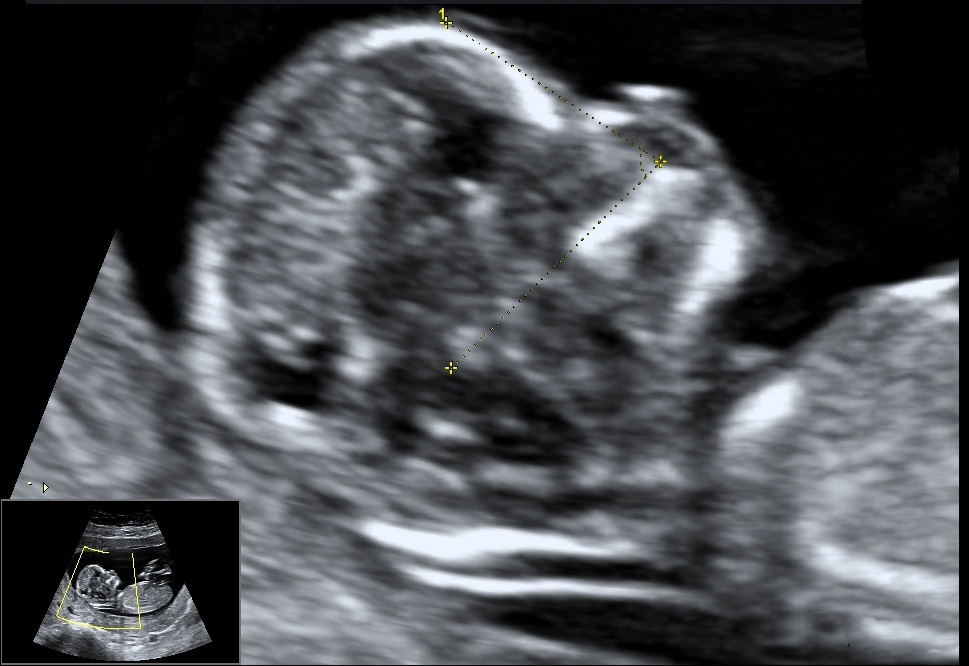
by anouradha bakshi | Sep 27, 2016 | Uncategorized

You may be wondering why the illustration for this post is an ultrasound plate. The reason is that there exists no picture of the child whose story we tell.
Little Sonny was born a month or so ago to a beggar woman of the Kalka Temple. This was the mother’s 4th child, the eldest way in her late teens. Two of her children are special needs children and the husband passed away before Sonny was born. When the baby arrived and it was a boy, the mother was elated.
However one look at the child was enough to realise that the baby was born with Down Syndrome. No one had the heart to tell the mother. Would she have believed this? Perhaps not as Sonny was the ray of sunshine she held on to.
A few weeks later Sonny passed away. The reason given was an insect bite at night. He had gone to sleep alive and woke up dead. Maybe it was all for the best as a child like him had a very bleak future.
Had he been from a well-to-do family that a scan like the one above may have resulted in his being aborted.
He could also have been born in a caring family that would have done everything possible to make his life the best or to a family where he would have been shunned. But that was not the case.
Sonny is one of children born in India but never claimed by the land. They remain wandering souls that have fallen off the net and when they pass they often fade from the memories of those who gave them life as they are too busy in simply surviving.
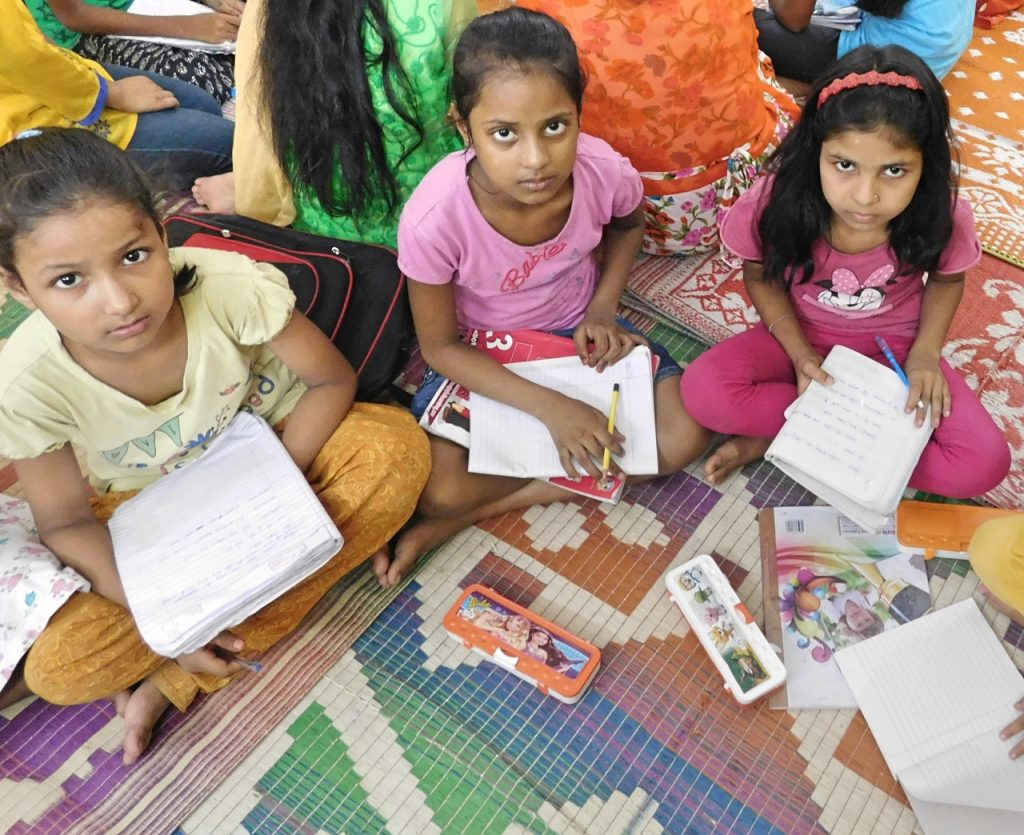
by anouradha bakshi | Sep 20, 2016 | Uncategorized

A recent UNESCO report states that India could be late by half a century in achieving its global education commitments. It would need to make fundamental changes in the education policy if it were to meet the 2030 goals. At present India is expected to achieve universal primary education in 2050, universal lower secondary education in 2060 and universal upper secondary education in 2085.
That education is the one and only road to transformation is indubitable. Education helps break the poverty cycle and hence should be given centre stage. But that is not the case; hence the delays un meeting the millennium goals.
If we are to go with the stated report then it will take another 34 years for ALL children in India to acceded to primary education.
Let us leave statistics alone and look at the human factor. What this means is that for many millions of children today primary education remains a dream. The reasons are many. From poorly run schools, to lack of teachers, to lack of motivation, to gender bias, to access to schools, to inclusiveness, to poverty etc. Each of this is redressable.
But time is a crucial factor and time is something that children do not have. They grow every minute and before even planning can be done, they have missed the coach.
It is imperative that immediate solutions are found and implemented.
One such solution is Project Why.
Education does not simply mean enrolment in a school. Only if the education is of quality will it help transform a life. In todays education scenario going to school alone does not suffice. What has come to be know as ‘shadow education’ – after school tuition, coaching, extra classes – is a essential to success. This comes at a price the poor cannot pay. This is further compounded by the fact that poor children often have illiterate parents who cannot provide any support.
It is over 1000 children that Project Why helps at no cost for the past 16 years. The fact that the problem is not only real but calamitous is amply demonstrated by the large number of children who have come to Project Why after 3, 4, 5 and even more years of sitting on a school bench and who could barely read or write. Such children drop out often by the end of primary school or when they face their first real exam.
The flip side is that the same child who would have dropped out and been considered a failure needs only a little help to make up for lost years and reach the top of her class. We have many such children. That is what makes the situation so tragic.
Project Why is a minuscule effort but one that bears fruits. At least for these 1000 children education is a reality.

by anouradha bakshi | Sep 15, 2016 | Uncategorized

India has the largest number of stunted children in the world reveals a recent study. For Project Why that is one too many! The main reasons are: lack of toilets, dirty water and poor hygiene. In urban slums and even lower middle class colonies that is a reality. Narrow lanes, unchecked construction and overcrowding spell disaster. Even in the area where Project Why’s main office is located and where property is in 7 or even 8 figures, clean and drain water pipes get mixed and a foul smelling grey water runs in your taps. The reason being unchecked construction where pipes are dug ad infinitum by unskilled workers.
In slums where piped water does not exist, drinking water is collected in recipients of all kind from taps or water trucks. Then it is stored often in unhygienic condition and used for the next 24 hours.
Toilets are scarce. Those that exist are filthy. A brave Project Why teacher undertook the survey of local public toilets and was sick for two days. They were beyond filthy. The problem often was lack of water and budgets for cleaning.
It all comes down to planning.
What no one realised is that the dirty water is drunk by children below 2 who get stunted for life. The damage is irreversible. These children grow to be physically and intellectually weaker than their peers. Some do not make it to age 2 as they succumb to one of the many waterborne diseases. Death is rarer in cities where medical facilities are available but a stunted child is marked forever. Children cannot wait for long term solutions.
The way out is to educate people about the importance of water, about storing it in hygienic conditions, about washing hands before diving in the drinking water pot and about not wasting a drop.
At Project Why we do that relentlessly. Saturday is hand washing day. Regular competitions on water related themes help the children com up with solutions. Project Why even held a photo workshop where the theme was respect and one of the sub topics was RESPECT WATER. Here are some of the pictures taken by the children.
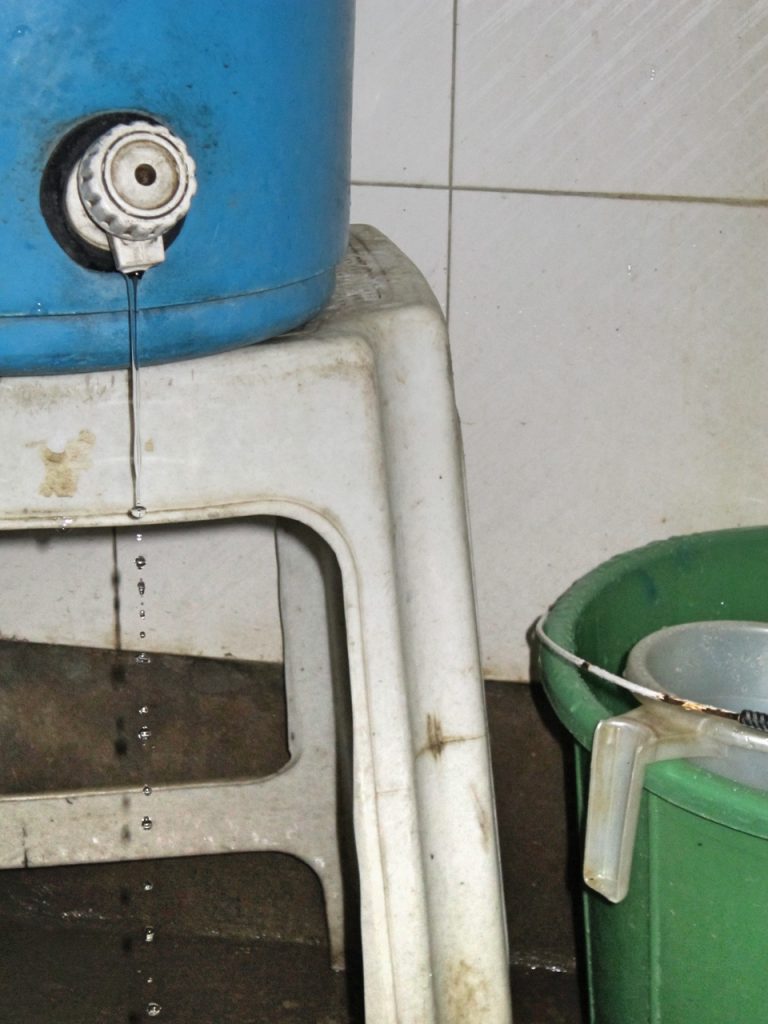
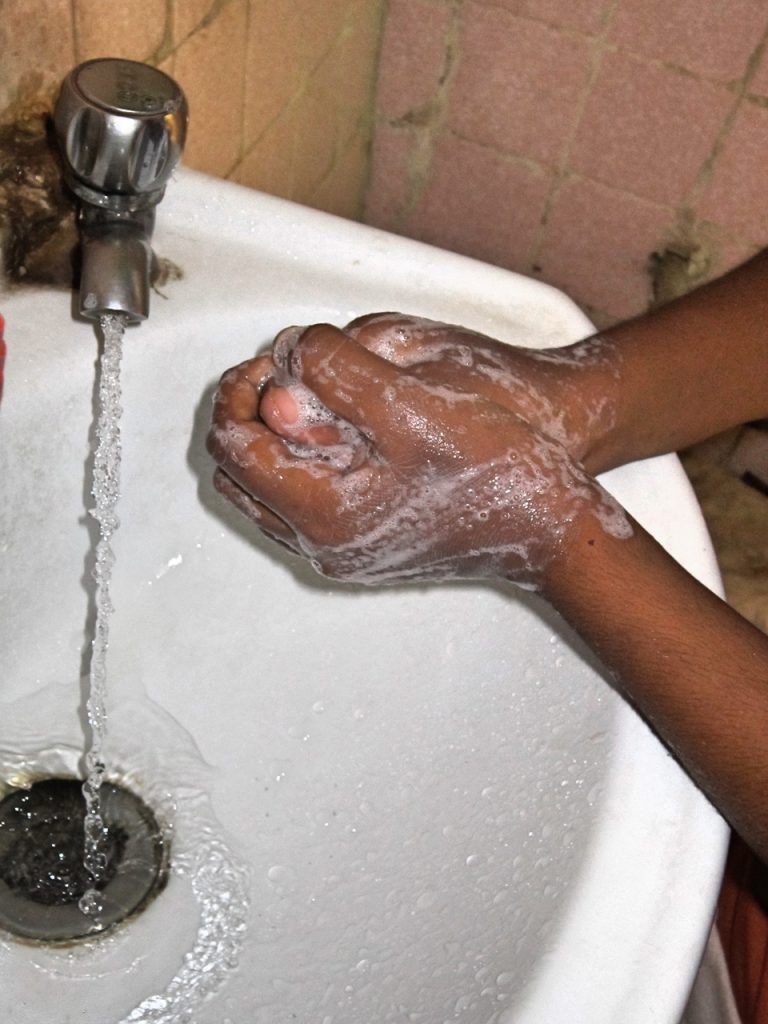
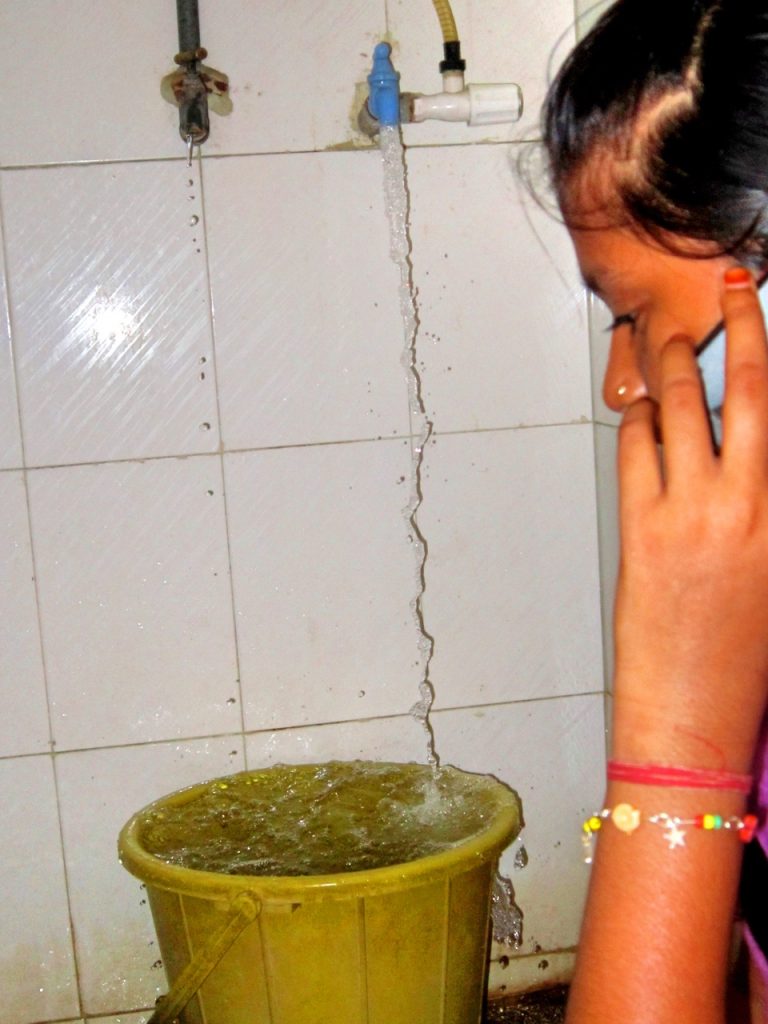

Gayatri
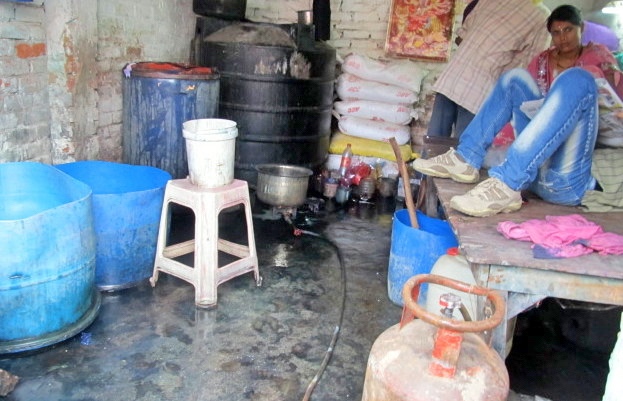
The workshop helped children experience reality and we hope they will carry the message forward.
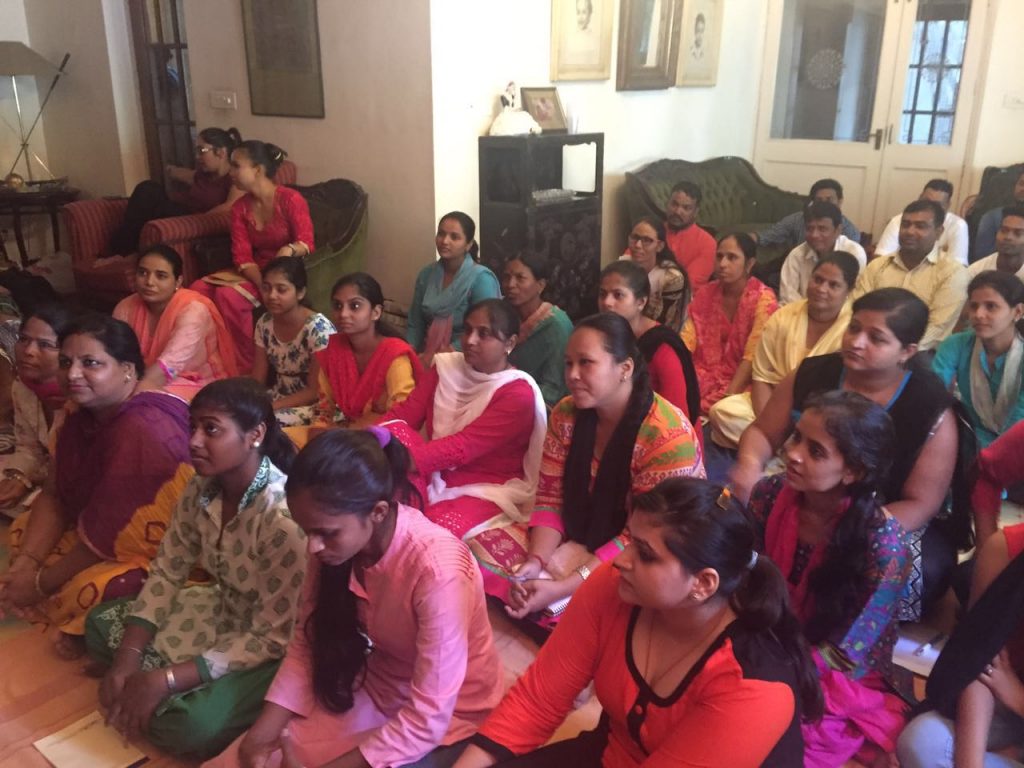
by anouradha bakshi | Sep 6, 2016 | Uncategorized

When a friend offered to run a healing workshop for Project Why staff so that they in turn could share it with the children we were a little hesitant. The reason being the multitude of faiths and beliefs followed by them. However we had faith in the sixteen years of sharing our views and beliefs and decided to go for it with the caveat of allowing individuals to opt out if they so wished.
Needless to say NO ONE opted out!
This experience, a first for Project Why, was most rewarding and made us wonder why we had not thought of it before. It was deeply empowering and helped everyone address situations and problems that were upsetting them. It also brought a feeling of peace, oneness and above all confidence. The staff enjoyed the experience and has promised to share it with their students.
It is a proud moment for Project Why and a validation of its efforts to bring people together and celebrate difference.









